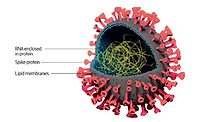Waterborne Soft-Touch Coatings and Films Offer Tangible Advantages
Car manufacturers use them to lend a feel of
quality to interiors, and vacuum original equipment manufacturers (OEMs) apply
them to handles for a soft, velvety feel. Soft-touch coatings formulated with
raw materials from Bayer MaterialScience LLC can be found in many different
applications ranging from household appliances to medical devices to
automobiles, and beyond. Two-component waterborne soft-touch coatings systems
and newly formulated soft-touch films work in tandem to deliver attractive
surfaces that have pleasing haptic qualities, but are also tough enough to
withstand years of daily use.
In its latest breakthrough, Bayer has applied its graffiti-resistant technology to soft-touch coatings, yielding a suntan lotion- and DEET- (N,N-diethyl-meta-toluamide) resistant coating. DEET, a slightly yellow oil, is the most common active ingredient in insect repellant.
Bayer MaterialScience LLC offers water-emulsible Bayhydur® polyisocyanates and Bayhydrol® polyurethane dispersions for the formulation of waterborne soft-touch coating systems. These coatings are used in numerous consumer products, such as the casings of laptop computers, telephones and MP3 players.
However, a major area of application for soft-touch coatings is the automotive industry. Soft-touch coatings offer many benefits – they have low gloss levels and thus low reflectivity, are very resistant to abrasion and scratching, and are available in a number of colors and effects. Automakers use them on consoles, steering wheels, arm rests and door trim among other components, providing aesthetic and haptic qualities.
The most recent breakthrough in soft-touch coatings is resistance to suntan lotion and DEET. Automotive OEMs have stringent specifications tests regarding chemical resistance. Until now, the industry challenge has been that coatings would pass the chemical resistance tests, but would not be soft; conversely, they would be soft, but fail because chemicals in the suntan lotion and DEET penetrated through the soft-touch coating and began to degrade the plastic underneath. Fortunately, Bayhydur polyisocyanates and Bayhydrol polyurethane dispersions pass the test, translating into a viable option for automotive OEMs.
New formulations of soft-touch films such as Makrofol® Softtouch and Bayfol® Softtouch, are high-performance grades for short production processes that improve the quality of soft-touch coatings. The soft-touch surface is applied before the films are molded and back-injected with plastic, eliminating the need for a coating line or spray coating. Time is on the molder’s side, as time-consuming component drying required with conventional coatings is eliminated. Films can also be printed on the reverse side or otherwise decorated in an additional step. End products feature attractive surfaces that can be produced quickly, efficiently and cost-effectively.
“The applications for our soft-touch technologies are just as diverse as the products in today’s marketplace,” said Kathy Allen, technical manager–2K WB, Coatings, Adhesives and Specialties, Bayer MaterialScience LLC. “As a leader in polyurethane chemistry, we will continue to make advances in the science of coatings – such as the new suntan lotion-resistant materials for automotive interiors – that meet the evolving needs of our customers.”
For more information about Bayer MaterialScience LLC's soft-touch technologies, call 412/777.3983, e-mail naftainfo@bayerbms.com or visit www.bayermaterialsciencenafta.com.
In its latest breakthrough, Bayer has applied its graffiti-resistant technology to soft-touch coatings, yielding a suntan lotion- and DEET- (N,N-diethyl-meta-toluamide) resistant coating. DEET, a slightly yellow oil, is the most common active ingredient in insect repellant.
Bayer MaterialScience LLC offers water-emulsible Bayhydur® polyisocyanates and Bayhydrol® polyurethane dispersions for the formulation of waterborne soft-touch coating systems. These coatings are used in numerous consumer products, such as the casings of laptop computers, telephones and MP3 players.
However, a major area of application for soft-touch coatings is the automotive industry. Soft-touch coatings offer many benefits – they have low gloss levels and thus low reflectivity, are very resistant to abrasion and scratching, and are available in a number of colors and effects. Automakers use them on consoles, steering wheels, arm rests and door trim among other components, providing aesthetic and haptic qualities.
The most recent breakthrough in soft-touch coatings is resistance to suntan lotion and DEET. Automotive OEMs have stringent specifications tests regarding chemical resistance. Until now, the industry challenge has been that coatings would pass the chemical resistance tests, but would not be soft; conversely, they would be soft, but fail because chemicals in the suntan lotion and DEET penetrated through the soft-touch coating and began to degrade the plastic underneath. Fortunately, Bayhydur polyisocyanates and Bayhydrol polyurethane dispersions pass the test, translating into a viable option for automotive OEMs.
New formulations of soft-touch films such as Makrofol® Softtouch and Bayfol® Softtouch, are high-performance grades for short production processes that improve the quality of soft-touch coatings. The soft-touch surface is applied before the films are molded and back-injected with plastic, eliminating the need for a coating line or spray coating. Time is on the molder’s side, as time-consuming component drying required with conventional coatings is eliminated. Films can also be printed on the reverse side or otherwise decorated in an additional step. End products feature attractive surfaces that can be produced quickly, efficiently and cost-effectively.
“The applications for our soft-touch technologies are just as diverse as the products in today’s marketplace,” said Kathy Allen, technical manager–2K WB, Coatings, Adhesives and Specialties, Bayer MaterialScience LLC. “As a leader in polyurethane chemistry, we will continue to make advances in the science of coatings – such as the new suntan lotion-resistant materials for automotive interiors – that meet the evolving needs of our customers.”
For more information about Bayer MaterialScience LLC's soft-touch technologies, call 412/777.3983, e-mail naftainfo@bayerbms.com or visit www.bayermaterialsciencenafta.com.
Looking for a reprint of this article?
From high-res PDFs to custom plaques, order your copy today!





